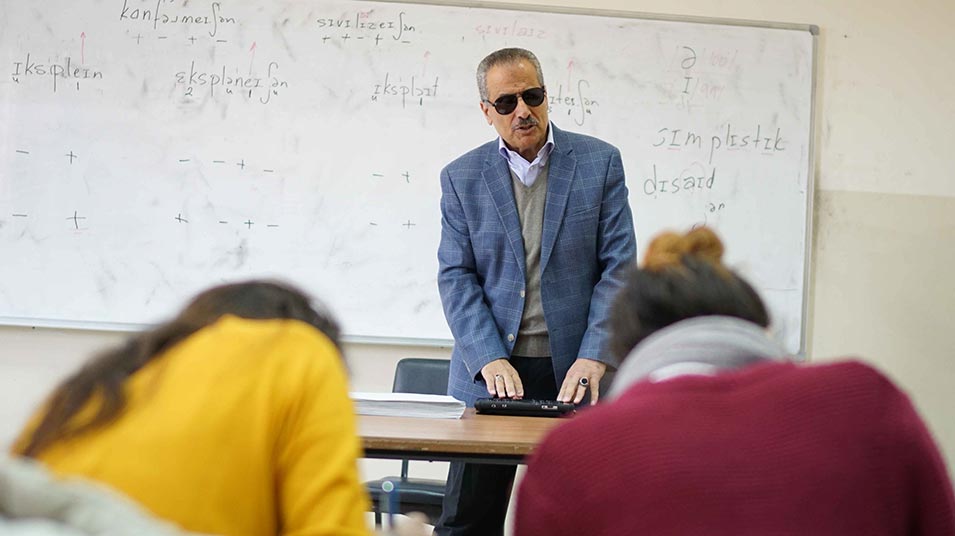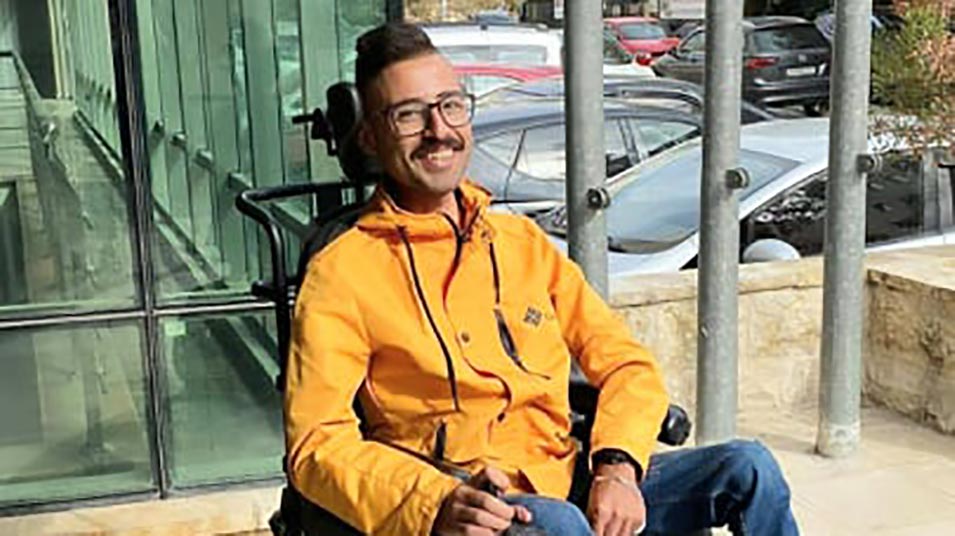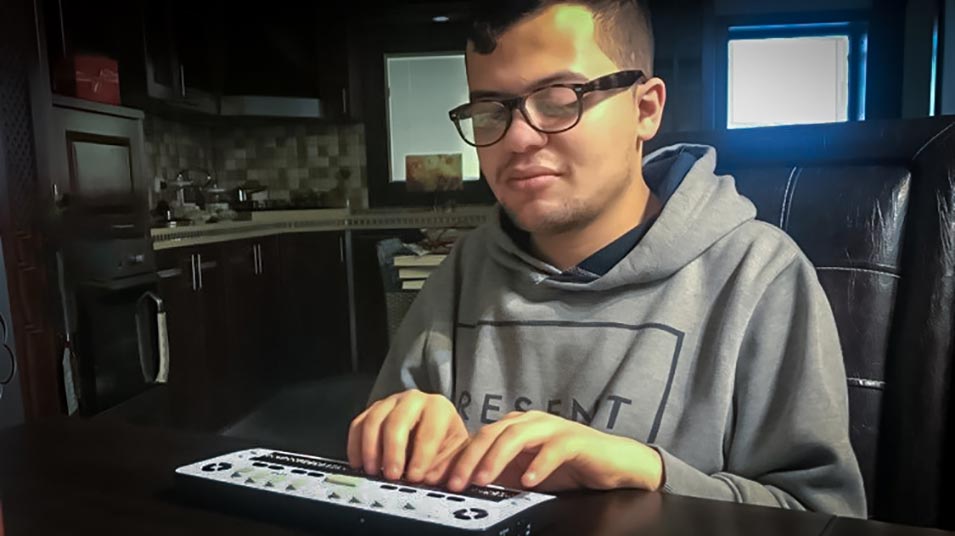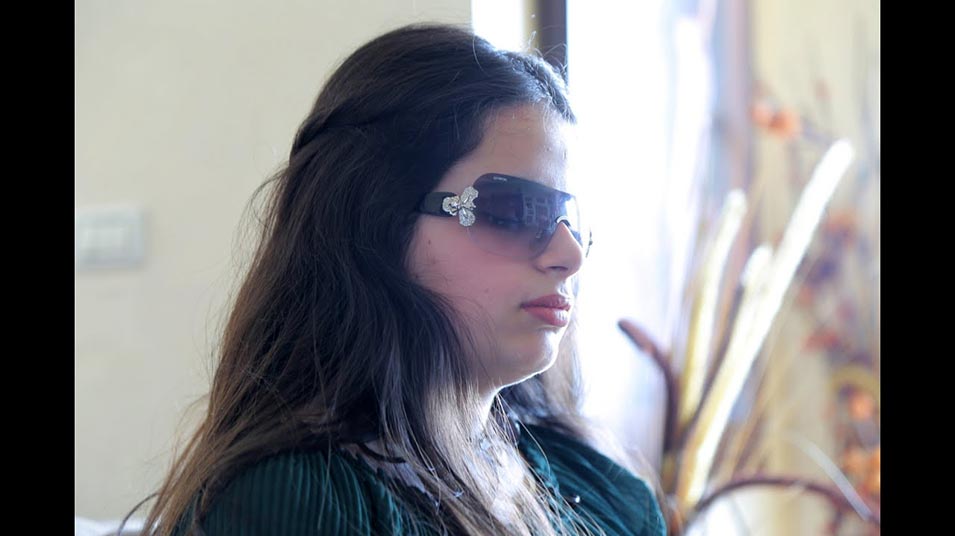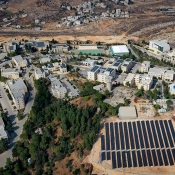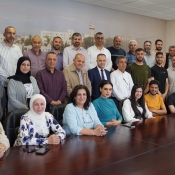Students with disabilities tackle distance learning challenges during COVID-19 lockdown
COVID-19 has put a stop to traditional teaching and learning methods in virtually all countries and nations around the world, prompting educators and students to switch to distance learning in an effort to curb the spread of the virus.
Although the transition to Zoom lectures and virtual discussions was not easy, Birzeit University provided its community with the right tools and support to make the switch to distance learning smoother for students, faculty, and staff.
Over the past year, the university upgraded its communication infrastructure to allow for instructors to hold lectures and discussions, and students to join them, without delay or interference, while the Academic Development Unit held training sessions for new and regular instructors on virtual lectures and assessment procedures that more closely fits the nature of distance learning.
Despite all these advancements and technical upgrades, one student group in particular has been disproportionately affected by the pandemic: students with disabilities. Not only have they been unable to meet with their friends and colleagues at the university, but they’ve also lost access to necessary equipment, such as braille embossers or text magnifiers.
In honor of the UN International Day of Education, we are highlighting the distance learning experiences of a few individuals of the people with disabilities community at Birzeit University, drawing attention to the challenges that they’ve faced so that we, as a community, can address them.
— Yara Qawariq, first-year Art, Music and Design student
Unfortunately for Yara, her first year at Birzeit University saw the spread of a world-wide disease — COVID-19 — and the subsequent national lockdowns to prevent its spread. This, she said, has deprived her of the chance to build social relations with peers and instructors at the university.
Additionally, the lockdowns in Palestine meant that her troupe, “Hawas” (Senses), is unable to play at different venues around the country, drying up her source of income and exacerbated an already difficult situation.
As for distance learning, Yara noted that while administrators and faculty members made every effort to facilitate continuing teaching and learning under COVID-19, the country’s weak communications infrastructure meant that lectures and discussions sometimes ground to a halt due to technical reasons.
The technical limitations, combined with the need to sit for long hours in front of computers every day meant that students, especially those with disabilities, faced difficulties in completing their education, Yara added.
— Laith Hammad, first-year Law and Public Administration student
Although many students are eagerly awaiting the day when Birzeit University’s campus reopens, Laith does not mind waiting. The campus closure, he said, meant that traveling between classes across the university’s large campus, an issue for Laith as he has a mobility disability, has been replaced by mouse clicks from one Zoom meeting to the other.
Laith, who is immunocompromised, added that the lockdown meant that he doesn’t have to worry about his health or that of his family.
Laith said that the transition to distance learning has been rough at first, but with help and support from his instructors as well as members of the Committee for Persons with Special Needs, he was able to keep up with lectures and coursework.
“That being said, I do miss meeting with my friends and the lively atmosphere of our campus,” Laith said.
— Munes Nazzal, final-year English Language and Literature student
For Munes, the transition to distance learning has been easier than other students; something he attributes to his familiarity with videoconferencing technology and overall interest in IT. Munes has been regularly helping students navigate the intricacies of Zoom and how to submit their coursework on the university’s online platform.
But Munes wasn’t content just helping students academically, he also regularly created chatrooms and hosted virtual meetings where everyone can connect and socialize. The popularity of his social and academic initiatives, he added, only drives him to be more involved in Birzeit University’s community and the larger Palestinian society.
— Dr. Azim Assaf, assistant professor at the Department of English Language and Literature
Assaf, who heads the university’s Committee for Persons with Special Needs, said that the past year has been one of the most difficult in recent memory for the entire university community and, especially, for people with disabilities. The committee, he added, has been working overtime to provide students with the support and guidance they need to navigate the worst of the COVID-19 pandemic.
“We realize that this is a difficult time for everyone,” Assaf said, “and we have been working with our colleagues at the university and volunteers inside and outside the institution to provide students with the assistive devices they need to continue their studies in the best way possible.”
Assaf said the committee has been in regular contact with students, faculty members, and technical experts to make sure that the university’s distance learning platforms are well-suited for students with disabilities, adding that the system is under constant improvement to serve the needs of the students under these difficult circumstances.

